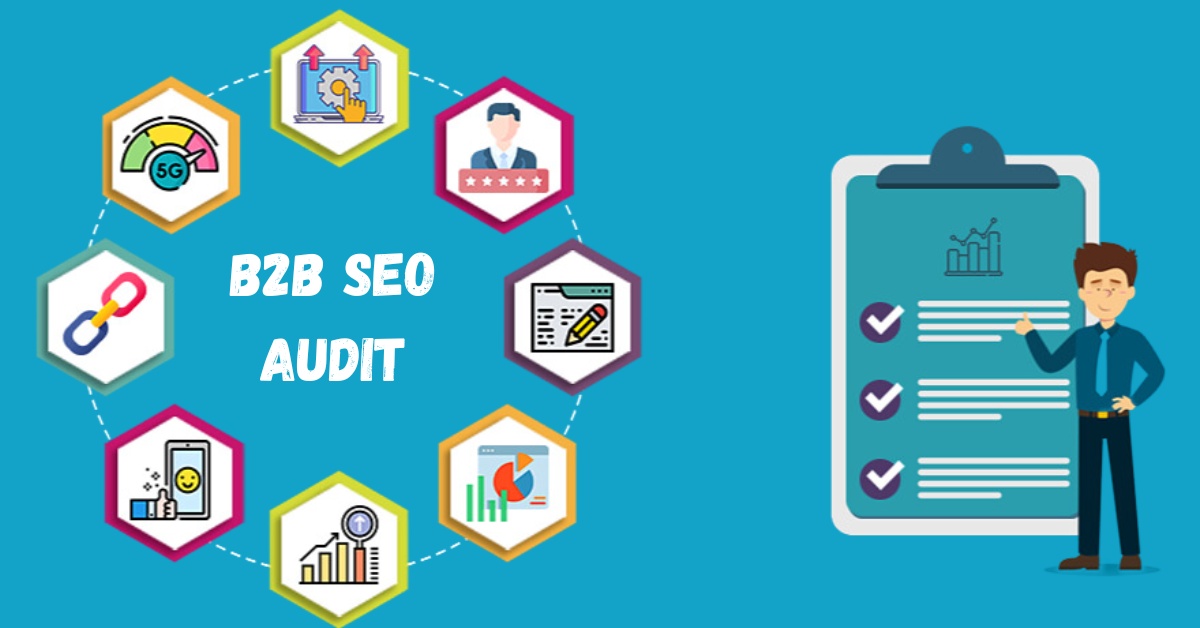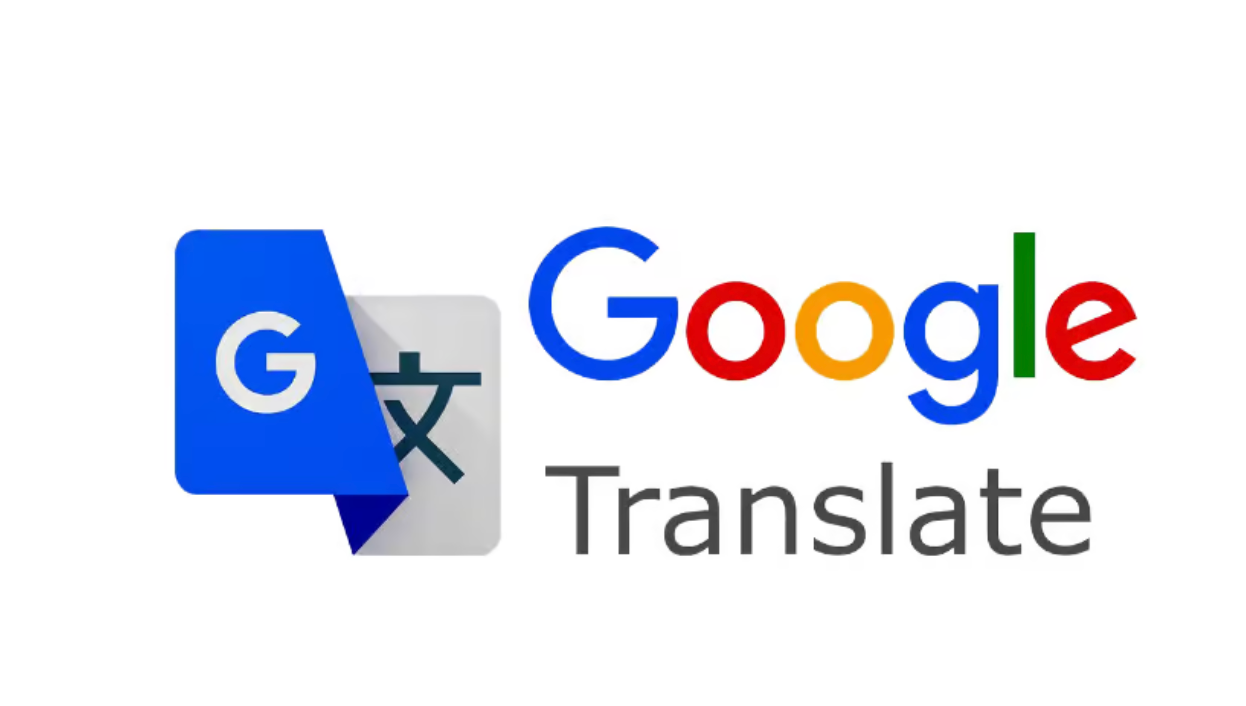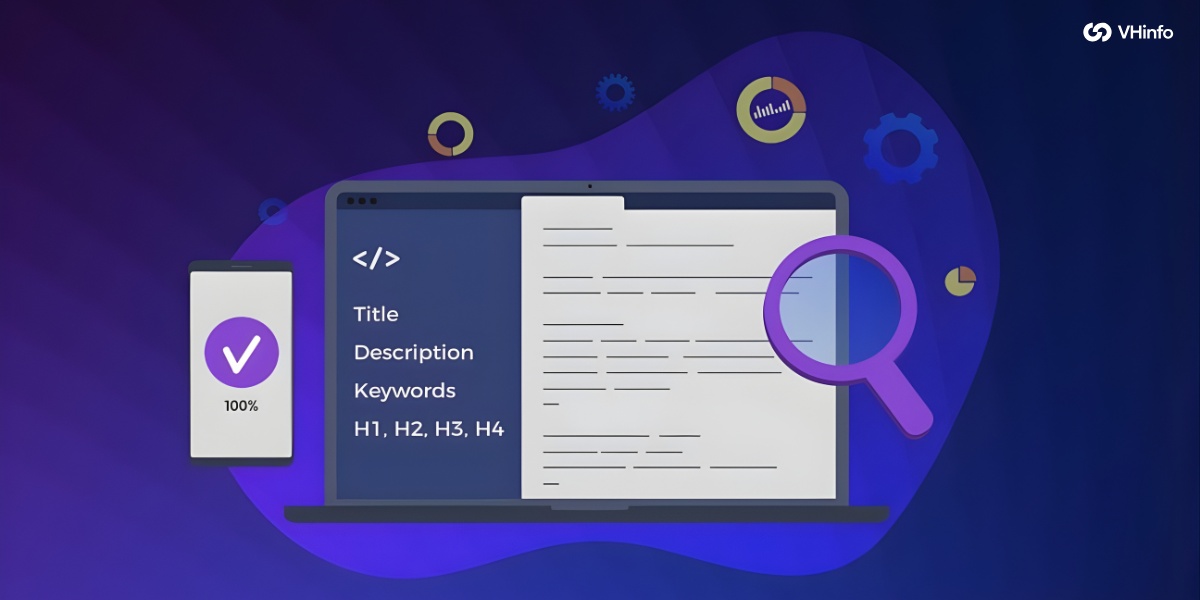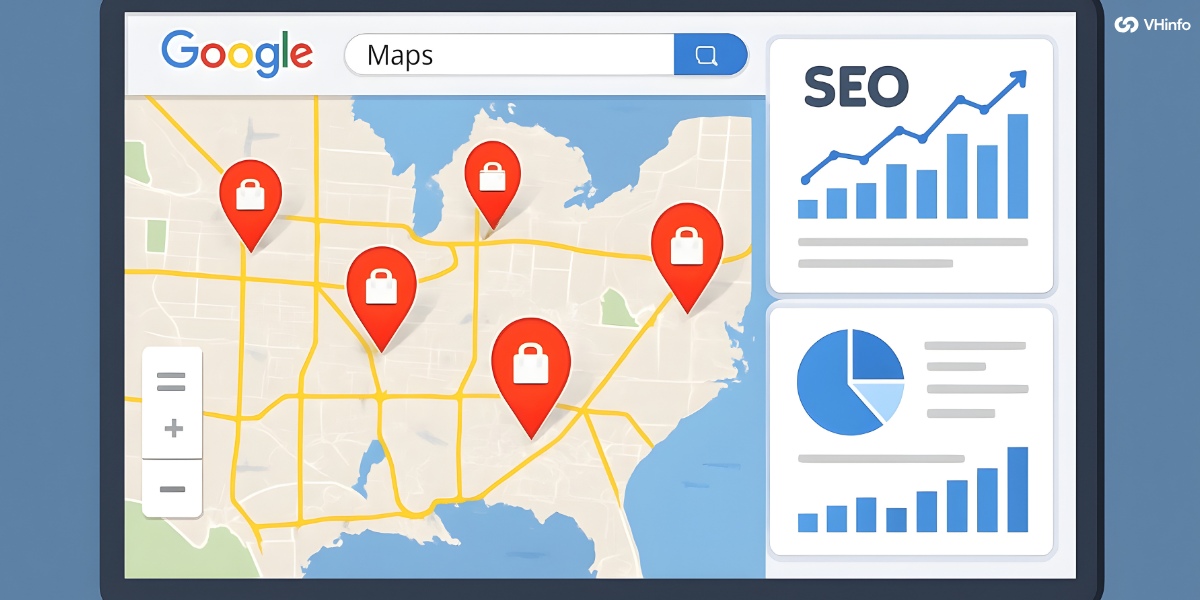Are you struggling to improve your B2B website’s visibility in search engine results? A comprehensive B2B SEO audit is the first step to identifying and fixing issues hindering your SEO performance.
In this ultimate guide, we’ll dive into the importance of B2B SEO audits, the benefits they offer, and a step-by-step process to conduct one effectively.
What is a B2B SEO Audit?

A B2B SEO audit is a thorough analysis of your website’s search engine optimization (SEO) health, focusing on factors that impact your search rankings, organic traffic, and overall online presence. It involves examining various aspects of your website, including technical SEO, on-page elements, content quality, and off-page factors like backlinks.
Why B2B SEO Audits Are Important?
In the competitive B2B landscape, a strong SEO strategy is important for driving targeted traffic, generating leads, and establishing your brand as an industry leader. A B2B SEO audit helps you:
- Technical SEO audit: Identify technical issues preventing search engines from crawling and indexing your site effectively. Technical audit also involves things like checking the schema markup, page speed, image optimization, checking for duplicate content etc.
- On Page Audit: Optimize on-page elements like title tags, meta descriptions, and header tags for better search visibility. Essential an On page audit makes sure that your topic clusters are well built and whether you are focusing on quality content, internal links etc or not.
- Content Audit: Assess content quality and relevance to ensure you’re targeting the right keywords and satisfying user intent to diversify your SEO content marketing results. The end goal of a content audit is to streamline the sales funnel and improve your service pages, landing pages and pillar pages to get more organic search traffic to you website.
- Backlink Audit: Analyze your backlink profile to identify opportunities for improvement and eliminate toxic links
Benefits of Conducting a B2B SEO Audit
Investing in a B2B SEO audit offers numerous benefits for your business, including:
- Improved search rankings: By identifying and fixing SEO issues, you can boost your website’s search engine rankings and attract more qualified traffic.
- Enhanced user experience: Optimizing your site’s structure, navigation, and doing a content audit makes it easier for users to find what they need (i.e. their pain points), leading to higher engagement and conversion rates.
- Competitive advantage: Understanding your competitors’ SEO strategies allows you to identify gaps and opportunities to outrank them in search results.
- Cost-effective marketing: SEO is a long-term, cost-effective marketing strategy that supports B2B lead generation services by driving ongoing organic traffic and capturing qualified leads.
What Do You Need to Start Your B2B SEO Audit?

Before diving into the audit process, there are a few key things you’ll need:
Run a Competitor Analysis
Analyze your competitors’ websites to identify their target keywords, content strategies, and backlink profiles. This will give you valuable insights into industry best practices and areas where you can differentiate yourself.
Set Goals and Objectives
Clearly define what you want to achieve with your B2B SEO audit, whether it’s improving search rankings, driving more organic traffic, or increasing conversions. Setting specific, measurable goals will help guide your efforts and track progress.
What is Included in an SEO Audit?

A comprehensive B2B SEO audit typically includes the following elements:
- Technical SEO: Analyzing your website’s architecture, crawlability, indexability, site speed, and mobile-friendliness.
- On-page SEO: Evaluating title tags, meta descriptions, header tags, content quality, and keyword targeting for better rankings in google search results.
- Off-page SEO: Examining your backlink profile, identifying toxic links, and assessing your website’s authority and trust.
- Keyword research: Identifying high-value keywords that align with your business goals and have the potential to drive qualified traffic.
- Competitor analysis: Analyzing your competitors’ SEO strategies to identify opportunities for improvement and differentiation.
How to Conduct a B2B SEO Audit?

Now that you understand the importance and benefits of a B2B SEO audit, let’s walk through the steps to conduct one effectively.
Step 1: Crawl Your Website
The first step in your B2B site audit journey is to crawl your website. Think of this as sending a digital explorer to check every part of your site. This helps you see how a search engine views your site and find any possible problems.
Crawling your website will show you important information, like broken links, redirect issues, and pages that load slowly. These crawl errors can hurt your user experience and lower your search rankings.
Finding these problems early means you can fix them quickly. This makes your website easy to access for both users and search engines. This step is important for a successful SEO audit and sets you up for better optimization.
Step 2: Analyze Your Technical SEO
- Check For Crawl Errors: Ensure that search engine bots can easily crawl and index your website. Look for issues like server errors, broken links, and robots.txt file problems that may be preventing search engines from accessing your content.
- Evaluate Site Speed and Performance: Slow-loading pages can negatively impact user experience and search rankings. Use tools like Google PageSpeed Insights to assess your site’s speed and identify areas for improvement, such as optimizing images and minifying code.
- Ensure Your Site is Mobile-Friendly: With mobile devices accounting for a significant portion of web traffic, having a mobile-friendly website is important for SEO success. Use Google’s Mobile-Friendly Test to evaluate your site’s mobile responsiveness and make necessary improvements.
Step 3: Review On-Page SEO Elements
- Optimize Title Tags and Meta Descriptions: Title tags and meta descriptions are essential for attracting clicks from search results. Ensure that each page has a unique, relevant title tag and meta description that accurately reflects the content and includes target keywords.
- Analyze Header Tags (H1, H2, H3): Header tags help structure your content and signal its importance to search engines. Make sure each page has a single, relevant H1 tag and that subheadings are properly nested using H2 and H3 tags.
- Assess Content Quality and Relevance: High-quality, relevant content is the foundation of a successful SEO strategy. Evaluate your existing content to ensure it targets the right keywords, satisfies user intent, and provides value to your target audience. Identify gaps and opportunities for new content creation.
Step 4: Examine Off-Page SEO Factors
- Analyze Backlink Profile: Backlinks from high-quality, relevant websites can significantly boost your search rankings. Use tools like Ahrefs or Moz to analyze your backlink profile, identifying opportunities for improvement and monitoring your competitors’ link-building strategies.
- Check For Toxic Backlinks: Not all backlinks are created equal. Low-quality or spammy links can harm your search rankings and even lead to manual penalties from Google. Identify and disavow any toxic backlinks to maintain a healthy link profile.
Step 5: Identify Keyword Gaps and Opportunities
Conduct thorough keyword research to identify high-value keywords that align with your business goals and have the potential to drive qualified traffic. Analyze your competitors’ keyword strategies to find gaps and opportunities for differentiation.
B2B SEO Audit Checklist
To ensure you cover all the essential aspects of a B2B SEO audit, use this handy checklist:
- Crawl your website to identify technical SEO issues
- Analyze your site’s architecture, navigation, and internal linking structure
- Evaluate site speed and performance
- Ensure your site is mobile-friendly
- Optimize title tags and meta descriptions
- Analyze header tags (H1, H2, H3)
- Assess content quality and relevance
- Examine your backlink profile and disavow toxic links
- Identify keyword gaps and opportunities
- Conduct a competitor analysis
Is a B2B SEO Audit Worth it?
Absolutely! Investing in a B2B SEO audit is essential for any business looking to improve its online presence, drive targeted traffic, and generate leads. By identifying and fixing SEO issues, optimizing on-page elements, and developing a strong content strategy with a focus on core web vitals, you can establish your brand as an industry leader and gain a competitive edge in search results.
B2B SEO Audit Tools

To conduct a thorough B2B SEO audit, you’ll need the right tools. Here are some of the best options:
- Screaming Frog: Screaming Frog is a powerful website crawler that helps you identify technical SEO issues, analyze on-page elements, and generate comprehensive reports.
- Semrush: Semrush is an all-in-one SEO tool that offers website auditing, keyword research, competitor analysis, and backlink monitoring capabilities.
- Ahrefs: Ahrefs is a popular tool for analyzing backlink profiles, identifying link building opportunities, and monitoring your competitors’ SEO strategies.
- Ubersuggest: Ubersuggest is a user-friendly keyword research tool that helps you identify high-value keywords, analyze search intent, and generate content ideas.
- Moz Pro: Moz Pro offers a suite of SEO tools, including website auditing, keyword research, and link building insights, making it an excellent choice for businesses of all sizes.
- Google Search Console: Google Search Console is a free tool that provides valuable insights into your website’s search performance, including keyword rankings, click-through rates, and crawl errors.
- Google Analytics: Google Analytics is an essential tool for tracking your website’s traffic, user behavior, and conversion rates, helping you make data-driven decisions to optimize your SEO efforts.
How Long Does A B2B Audit Take?
The duration of a B2B SEO audit depends on the size and complexity of your website, as well as the scope of the analysis. A thorough audit can take anywhere from a few days to several weeks, depending on the number of pages, the depth of the analysis, and the resources available.
How Can The Results Of A B2B SEO Audit Improve My Business?

The insights gained from a B2B SEO audit can help you:
- Improve your website’s search rankings and visibility
- Drive more targeted, qualified traffic to your site
- Enhance user experience and engagement
- Increase lead generation and conversion rates
- Establish your brand as an industry authority
- Gain a competitive advantage in your market
FAQ’s:
How Much Does a B2B SEO Audit Cost?
The cost of a B2B SEO audit varies depending on the size of your website, the complexity of the analysis, and the provider you choose. Prices can range from a few hundred to several thousand dollars.
How Often Should A B2B SEO Audit Be Conducted?
It’s recommended to conduct a comprehensive B2B SEO audit at least once a year, or whenever you make significant changes to your website. However, it’s essential to continuously monitor your SEO performance and make ongoing optimizations to stay ahead of the competition.
What Are Some Common Findings Of A B2B SEO Audit?
Common findings of a B2B SEO audit include technical issues like crawl errors and site speed problems, on-page optimization opportunities, content gaps, and backlink profile weaknesses.
Can Small B2B Businesses Benefit From SEO Audits?
Yes! Regardless of your business size, a B2B SEO audit can help you identify areas for improvement, optimize your online presence, and attract more qualified leads.
Can A B2B SEO Audit Identify Opportunities For Content Creation?
Absolutely! A thorough SEO audit will analyze your existing content, identify gaps and opportunities for new content creation, and help you develop a targeted content strategy that aligns with your business goals and target audience’s needs.
Conclusion
A comprehensive B2B SEO audit is essential for any business looking to improve its online presence, drive targeted traffic, and generate leads.
Following the steps outlined in this guide and utilizing the right tools, you can identify and fix SEO issues, optimize your website for search engines, and develop a strong content strategy that resonates with your target audience.
At VH-info, we specialize in providing actionable insights and expert guidance for B2B SEO success. Our experienced team can help you conduct a thorough SEO audit, develop a customized strategy, and implement effective tactics to boost your search rankings and drive meaningful results.
Don’t let poor SEO hold your business back. Invest in a B2B SEO audit today and take the first step towards unlocking your website’s full potential.



